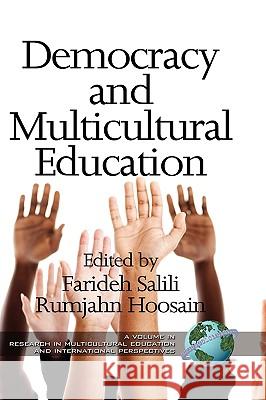Democracy and Multicultural Education (Hc) » książka
Democracy and Multicultural Education (Hc)
ISBN-13: 9781607524236 / Angielski / Twarda / 2010 / 394 str.
Democracy and Multicultural Education (Hc)
ISBN-13: 9781607524236 / Angielski / Twarda / 2010 / 394 str.
(netto: 417,35 VAT: 5%)
Najniższa cena z 30 dni: 434,65
ok. 30 dni roboczych.
Darmowa dostawa!
A volume in Research in Multicultural Education and International Perspectives Series Editors Farideh Salili and Rumjahn Hoosain, The University of Hong Kong Democratic political systems and the democratic way of life is aspired by most people around the world. Democracy is considered to be morally superior to other forms of political systems as it aspires to secure civil liberties, human rights, social justice and equality before the law for everyone regardless of their gender, culture, religion and national origin. Enshrined in democracy is separation of religion and state, fair and competitive elections of leaders according to a country's constitution which in turn is based on democratic ideals. Democracy aspires for people of different backgrounds to live together with their differences intact, but all contributing towards a better life for all. In today's increasingly pluralistic societies many people of different cultural and national backgrounds are brought together. Many have migrated from countries with autocratic political systems. Some with religions that require them to behave in different way, others with cultures teaching them values of harmony, collectivism and conformity as opposed to the culture of their host country emphasizing individualism and cherishing differences. Hence, in multicultural societies development of pluralistic democracy, a democracy which includes respect for diversity is essential. A truly multicultural education which is based on the assumption that different cultures will be equally represented in education goes a long way towards education for democratic citizenship. Such an education would make students aware of issues of human rights and justice and encourage them to define their own values and ways in which they could contribute to a better world. The aim of this volume is to provide a forum for discussion of how multiple social perspectives and personal values can be brought together on common grounds around matters related to democracy. Contributions from research, and scholarly theoretical work as well as presentation of existing creative models of democracy education will be included. Authors from the major democracies will comment on the models and practice of multicultural education in their respective countries, to facilitate discussion and learning from each others' experiences.











